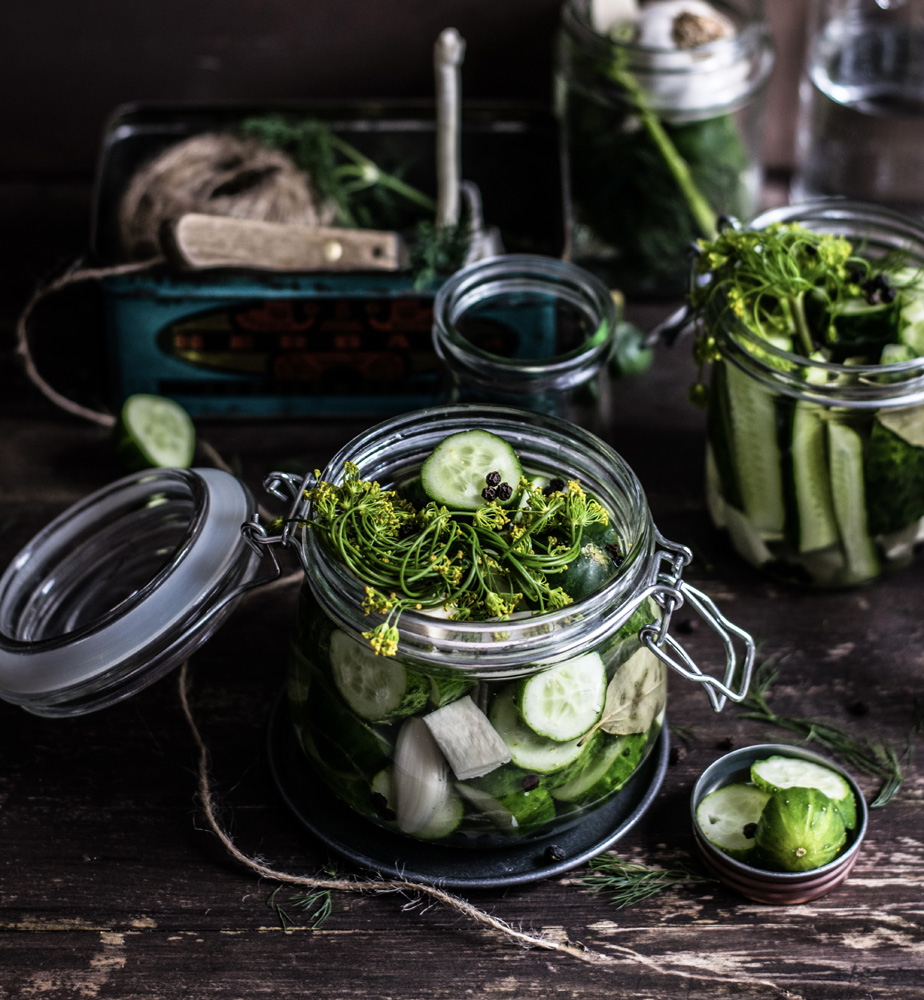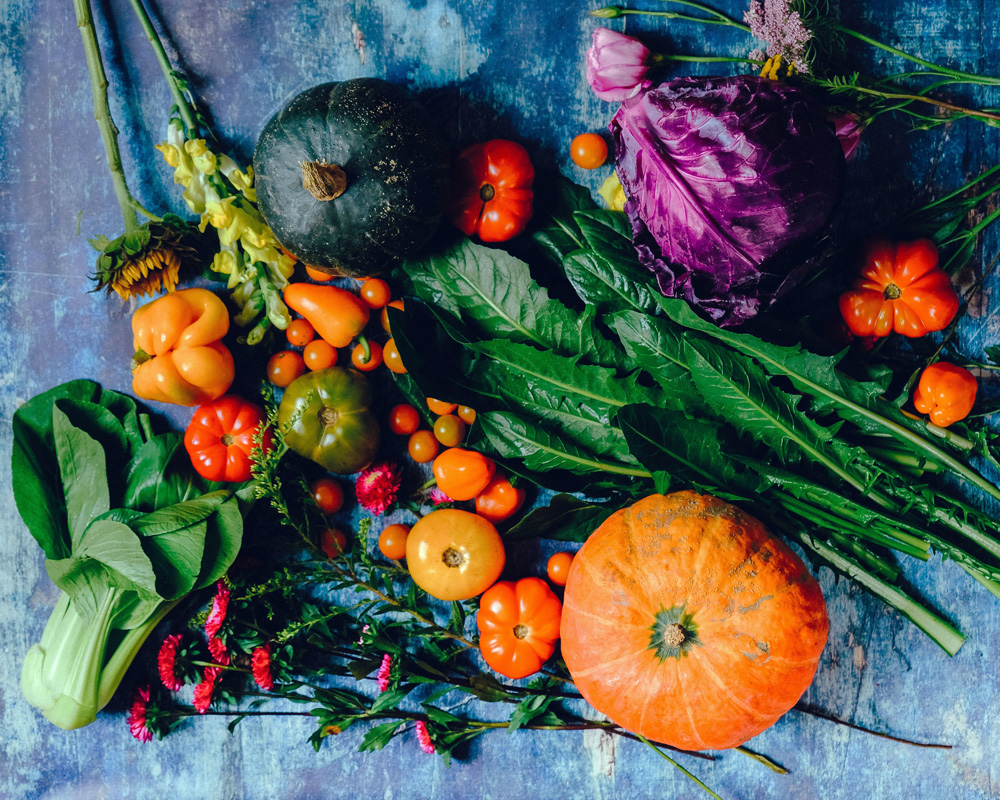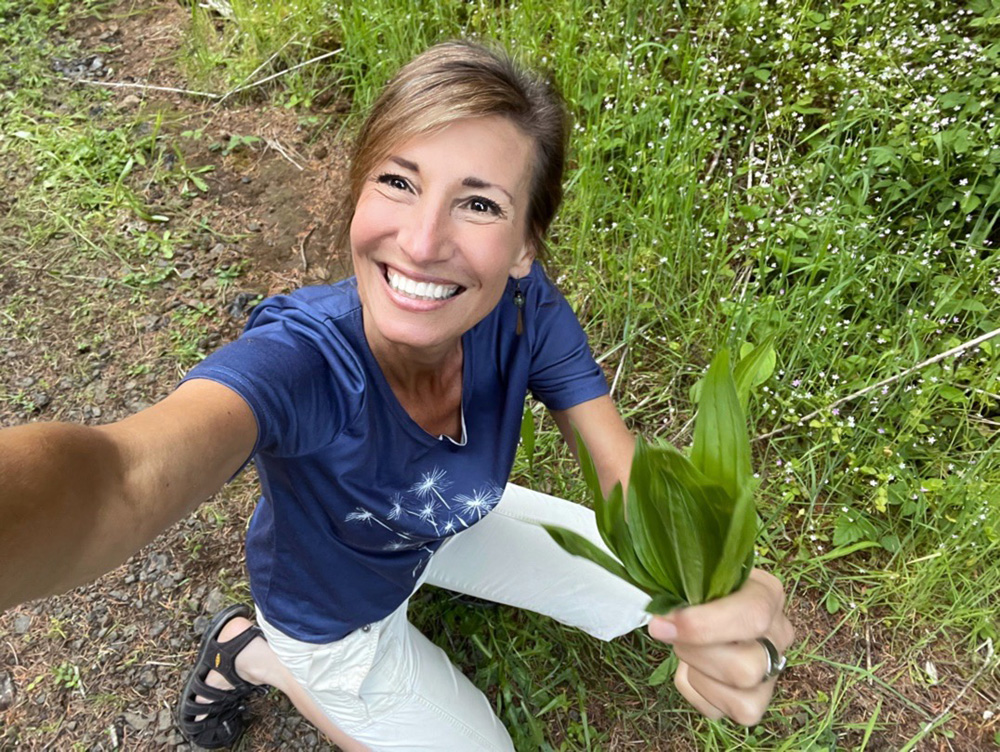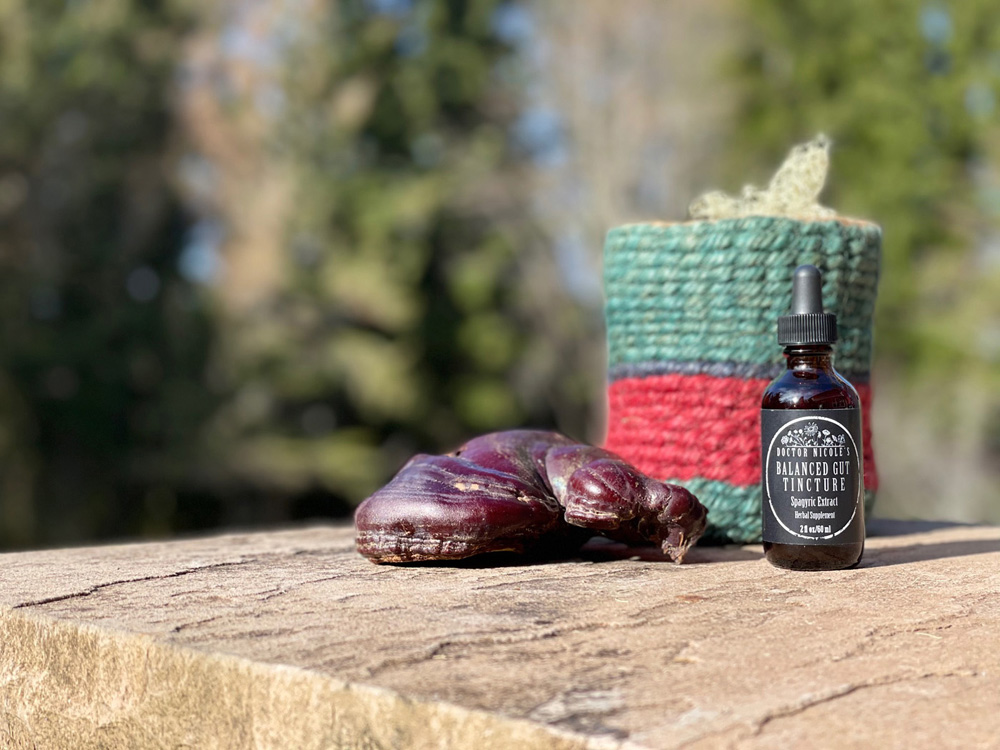Tiny But Mighty
Can food choices actually control your mind? Incredibly, the answer is yes! The secret lies with the gut-brain axis and those tiny bacteria that make up your microbiome. When you eat, these microbes respond by pumping out biochemicals that travel along the vagus nerve up to the brain — for better or worse. The idea of psychobiotics (gut bacteria that beneficially influence the brain) isn’t a far-fetched theory, researchers have been documenting it for years. In fact, as early as the 1800s this relationship between food, gut bacteria, and mental health was recognized, if not fully understood at the time. Doctors were seeing great improvements in their patients with mood disorders by prescribing soured milk and kefir drinks. Today, the study of psychobiotics is one of the most exciting areas in medicine today. Many physicians believe it should play a major role in treating mood and neurological disorders — such as anxiety, depression, Alzheimer’s, brain fog, and more. Here’s why.

The Microbiome and Gut-Brain Axis
We have been hearing about the importance of the microbiome for quite some time now — and for good reason! The health of this cluster of gut bacteria influences everything from immunity to mood and overall well-being. It can make (or break) your health on many different levels. When the microbiome becomes populated with too many bad bacteria and not enough of the good, it can lead to leaky gut, mood disorders, autoimmunity, and poor immune function. Leaky gut is when the intestinal lining becomes compromised and allows harmful substances to enter into the bloodstream, where it then circulates throughout the body and causes inflammation and a host of other health concerns. An imbalanced microbiome and leaky gut can also encourage mood disorders such as depression, anxiety, and PTSD — all of which are linked with inflammation in the brain and lower levels of important neurotransmitters.
Beneficial bacteria in the gut are known to produce GABA, dopamine, and serotonin. These are feel-good neurotransmitters that influence our happiness levels, motivation, and connection with others. When we don’t have enough of these important compounds, we experience higher rates of depression, anxiety, and PTSD. We also have increased cravings for drugs, alcohol, and sugar, which further promotes the cycle of leaky gut.1
A review published last year in the journal Current Microbiology explains how psychobiotics can help alleviate mood disorders:
“Psychobiotics are a special class of probiotics, which deliver mental health benefits to individuals. They differ from conventional probiotics in their ability to produce or stimulate the production of neurotransmitters, short-chain fatty acids, enteroendocrine hormones and anti-inflammatory cytokines. Owing to this potential, psychobiotics have a broad spectrum of applications ranging from mood and stress alleviation to being an adjuvant in therapeutic treatment for various neurodevelopment and neurodegenerative disorders.
The common psychobiotic bacteria belong to the family Lactobacilli, Streptococci, Bifidobacteria, Escherichia and Enterococci. The two-way crosstalk between the brain and the gastrointestinal system is influenced by these bacteria. The neurons present in the enteric nervous system interact directly with the neurochemicals produced by microbiota of the gut, thereby influencing the signaling to the central nervous system.”2
These beneficial bacteria have been shown to improve Parkinson’s and Alzheimer’s, autism spectrum disorder, and other conditions associated with cognition.3 And now researchers believe certain prebiotics also act as psychobiotics by influencing mood and emotions.4
“Probiotics are live microbes with benefits. I think prebiotics have also come into the psychobiotic category – these are growth promoters for beneficial microbes,” says Glenn Gibson, a professor of food microbiology at the University of Reading, United Kingdom.
Thankfully, it is fairly straightforward to repair the gut and boost these beneficial bacteria known as psychobiotics — including Bifidobacterium longum and Lactobacillus rhamnosus, both of which are known to help heal the gut lining and improve mood and neurological disorders. See the tips below for how to do just that!

Improving Gut Health With Diet
I have written quite a bit about the importance of cultivating a healthy microbiome and healing leaky gut because it is the foundation for mental and physical health. I have experienced this first hand in my own multiple sclerosis journey. Until the gut is healed, it will be difficult to address any health concerns you may have. Luckily, the healing process is simple with the help of dietary changes and a few select herbal medicines.
As I wrote in, “Fertilize Your Gut? You Bet! Here’s How.” we can take active steps everyday to heal a leaky gut and increase the beneficial bacteria in our microbiome. Not surprisingly, this begins with the diet.
Prebiotics are fuel for the good bacteria in your gut. Focus on foods such as bananas, oats, flaxseed, chia seed, dandelion greens, chicory root, apples, onions, raw jicama, and Jerusalem artichoke. Turkey tail mushroom is also an outstanding source of prebiotics — more on this later. Next are probiotics. Good food sources are kimchi, kombucha, miso, sauerkraut, tempeh, fermented pickles, Kefir and yogurt with active cultures. Also important for maintaining gut health is insoluble fiber, think: legumes, whole grains, coconut, popcorn, and nuts.
Eating plenty of vegetables is also crucial to encourage the formation of butyrate — a gut-friendly compound that helps to reduce inflammation, boost immunity, and reduce the risk of colon cancer. Make sure this includes plenty of leafy greens, including those of the wild sort. You can learn more about foraging (and eating) wild greens and more in my book, The Forager’s Guide to Wild Foods, Edible Plants, Lichens, Mushrooms, and Seaweeds.
And don’t forget about resistant starch. Like leafy greens, it is also a key player in helping to create butyrate in the gut. To boost your resistant starch intake, eat foods like green bananas, cooked then cooled potatoes, cashews, raw oats, and adding potato starch to your smoothie.
Herbal Solutions for Healing Leaky Gut and More
For additional gut support, here are six herbal remedies that help to soothe and repair the gut and encourage a healthy microbiome. Each is included in my potent Balanced Gut Tincture.
An excellent anti-inflammatory, reishi is known as the “mushroom of immortality” for its wide range of healing attributes — and taming inflammation is a crucial step to healing a leaky gut. Next is lion’s mane, which is high in antioxidants that cool the inflammatory response. Another outstanding medicinal mushroom, turkey tail is a terrific source of prebiotics for encouraging a healthy microbiome by controlling the overgrowth of candida, while also feeding the “good” bacteria in the gut.
Traditionally known as an all-around tonic for the digestive tract, plantain is an exceptional anti-inflammatory. It also soothes mucous membranes to help alleviate the symptoms of a leaky gut. Lastly, two additional herbs that support gut healing are slippery elm and marshmallow because each forms a protective layer that helps the gut to regenerate.
Ready to heal your gut and microbiome for optimal health? Visit the apothecary today and learn more about my Balanced Gut Tincture.
Nicole Apelian
Nicole’s Apothecary Products in this Post
References
- “Psychobiotics: A Revolution in Psychiatry”, Scott C. Anderson. Psychology Today, January 19, 2021.
https://www.psychologytoday.com/us/blog/mood-microbe/202101/psychobiotics-revolution-in-psychiatry -
Sharma, R., Gupta, D., Mehrotra, R., & Mago, P. (2021). Psychobiotics: The Next-Generation Probiotics for the Brain. Current microbiology, 78(2), 449–463. https://doi.org/10.1007/s00284-020-02289-5
-
Cheng, L. H., Liu, Y. W., Wu, C. C., Wang, S., & Tsai, Y. C. (2019). Psychobiotics in mental health, neurodegenerative and neurodevelopmental disorders. Journal of food and drug analysis, 27(3), 632–648. https://doi.org/10.1016/j.jfda.2019.01.002
-
Sarkar, A., Lehto, S. M., Harty, S., Dinan, T. G., Cryan, J. F., & Burnet, P. (2016). Psychobiotics and the Manipulation of Bacteria-Gut-Brain Signals. Trends in neurosciences, 39(11), 763–781. https://doi.org/10.1016/j.tins.2016.09.002






